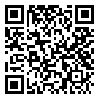Volume 1, Issue 4 (12-2014)
jbrms 2014, 1(4): 34-41 |
Back to browse issues page
Download citation:
BibTeX | RIS | EndNote | Medlars | ProCite | Reference Manager | RefWorks
Send citation to:



BibTeX | RIS | EndNote | Medlars | ProCite | Reference Manager | RefWorks
Send citation to:
Karimfar M H, Mastery Farahani R, Noorozian M, Sadat Khoramgah M, Keramati Nia A A, Moayeri A, et al . Using transient transfected Chinese hamster ovary (CHO) cells by pET28a-LIC-NTF4 in gene therapy. jbrms 2014; 1 (4) :34-41
URL: http://jbrms.medilam.ac.ir/article-1-87-en.html
URL: http://jbrms.medilam.ac.ir/article-1-87-en.html
Mohammad Hassan Karimfar 
 , Reza Mastery Farahani
, Reza Mastery Farahani 
 , Mohsen Noorozian
, Mohsen Noorozian 
 , Maryam Sadat Khoramgah
, Maryam Sadat Khoramgah 
 , Ali Asghar Keramati Nia
, Ali Asghar Keramati Nia 
 , Ardeshir Moayeri
, Ardeshir Moayeri 
 , Hadi Azimi
, Hadi Azimi 
 , Hojjat-Allah Abbaszadeh
, Hojjat-Allah Abbaszadeh 


 , Reza Mastery Farahani
, Reza Mastery Farahani 
 , Mohsen Noorozian
, Mohsen Noorozian 
 , Maryam Sadat Khoramgah
, Maryam Sadat Khoramgah 
 , Ali Asghar Keramati Nia
, Ali Asghar Keramati Nia 
 , Ardeshir Moayeri
, Ardeshir Moayeri 
 , Hadi Azimi
, Hadi Azimi 
 , Hojjat-Allah Abbaszadeh
, Hojjat-Allah Abbaszadeh 

Abstract: (5638 Views)
Introduction: Neurotrophins, as a family of proteins, are responsible for induction of the survival, development, and function of neurons. Also, neurotropic factors are growth factors like Neurotrophins that help neurons survive. Moreover, Neurotrophins differentiate between progenitor cells so that neurons are formed. Despite the fact that the majority of mammalian brain neurons are produced prenatally, the capability of growing new neurons from neural stem cells will be preserved by parts of the adult brain. This process is known as neurogenesis. Neurogenesis is stimulated and controlled by neurotrophins.
Materials and methods: The recombinant plasmid transformed to E.coli ´ cell and colonies that contain plasmid were selected by Colony PCR. Enzyme digestion and sequencing were monitored to approve the accuracy of extracted plasmid of the clones.
Results: Plasmid was verified correctly. Based on RT-PCR and western blotting, the transcription of NTF4 gene and the expression of NTF4 protein after transfection were proved.
Conclusion: Plasmid was correctly constructed, CHO Cells were successfully transfected by transfection, and protein could be properly expressed. The results provided a solid foundation for the studies in the area of the transplantation of gene-modified CHO Cells to further spinal cord regeneration.
Type of Study: Research |
Subject:
Medical Anatomy
Received: 2015/02/27 | Accepted: 2015/03/2 | Published: 2015/03/7
Received: 2015/02/27 | Accepted: 2015/03/2 | Published: 2015/03/7
| Rights and permissions | |
 |
This work is licensed under a Creative Commons Attribution-NonCommercial 4.0 International License. |


